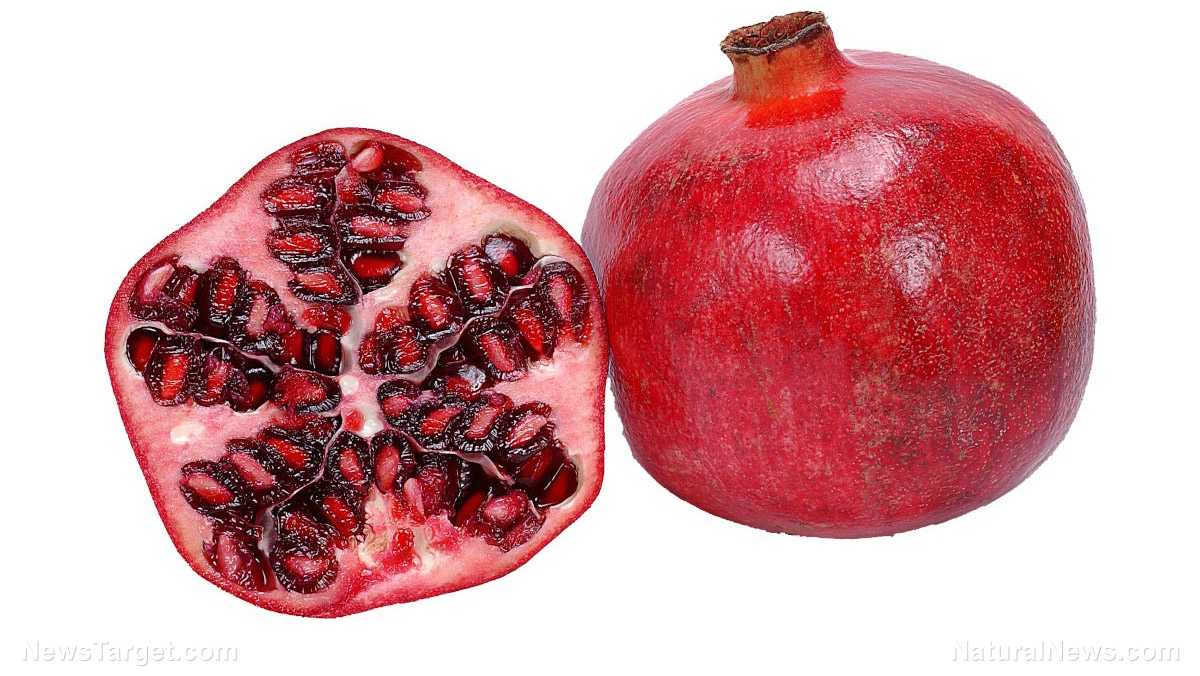12 Fruits that are packed with protein
09/20/2019 / By Zoey Sky

Your body contains four main macromolecules: carbohydrates, fats, nucleic acids, and proteins. Each of these macromolecules have specialized functions. For instance, proteins are essential for building tissue and strengthening your immune system. To boost your protein intake, add protein-rich fruits like pomegranates and bananas to your regular diet.
What are proteins?
Amino acids are small organic molecules that bind together to form proteins. Every cell in the human body contains different kinds of protein. In fact, your body produces at least 100,000 different proteins. Protein is the building block of your hair, muscles, and blood cells.
When you consume more protein than your body requires, the excess is converted into fat. Your body can also use up protein as a last resort energy reserve.
Animal foods are rich in protein, but you need to follow a balanced diet to ensure your overall health. Boost your intake of this macronutrient by eating a lot of healthy foods like lean meat and plant proteins.
Here are 12 protein-rich fruits that you need to add to your diet.
Avocados
Avocados are a great source of “good” fat. A 100-gram serving of avocado also contains two grams of protein. Add avocado to salads or use the fruit to make delicious chutneys and dips. (Related: 10 Healthy vegetarian snacks you can enjoy any time of the day.)
Bananas
A 100-gram serving of banana contains 1.1 grams of protein. This bright-yellow fruit is also a good source of potassium.
Enjoy a whole banana as a sweet and nutritious snack, or add it to pudding and smoothies.
Currants
Every 100-gram serving of currants offers at least 1.4 grams of protein.
Add fiber-rich currants to fruit jams, marmalades, or salads.
Dates
A 100-gram serving of dried dates offers 2.4 grams of protein. Dates make great healthy snacks and also contain lots of potassium.
Eat dates on their own, or enjoy them with a glass of milk.
Dried apricots
Each 100-gram serving of dried apricots contains 1.4 grams of protein. Apricots are full of vitamin A which protects your body from free radical damage.
Snack on a small handful of dried apricots or crush and add them to oatmeal.
Guavas
A 100-gram serving of guava contains 2.6 grams of protein. The fruit is also rich in vitamin C and pectin. Pink guava contains lycopene, a beneficial anti-cancer antioxidant.
Add guava to a homemade fruit salad or eat it on its own.
Jackfruit
A 100-gram serving of jackfruit contains 1.5 grams of protein. This unique fruit is also rich in antioxidants and nutrients like vitamins A, B, and C, along with calcium, copper, magnesium, and manganese.
Kumquats
Kumquats are rich in vitamins A, B, and C, and a 100-gram serving offers at least 1.9 grams of protein. Additionally, kumquats are a great source of omega-3 and omega-6 fatty acids.
Passion fruit
Passion fruit contains at least 2.5 grams of protein per 100 grams. This fruit also offers fiber and vitamin C, both of which improve metabolism and boost your immunity.
Pomegranates
A pomegranate contains at least five grams of protein per 100-grams, making it one of the most protein-rich fruits on this list.
Add pomegranates to salads or drink fresh, organic pomegranate juice.
Prunes
Prunes are dry fruits that are high in sugar, so consume them moderately. A 100-gram serving of prunes provides 2.2 grams of protein.
Prunes also contain lots of fiber and polyphenols, which help boost heart health and lower cancer risk.
The fiber in prunes can not only help control blood glucose levels, it can also help you maintain a healthy weight.
Snack on a small handful of prunes to boost your protein and fiber intake.
Raisins
A 100-gram serving of raisins offers at least 3.1 grams. Raisins also contain fiber, iron, and potassium, all of which promote digestive health.
Add raisins to oatmeal or rice pudding or snack on a handful for a protein-rich treat.
Other protein-rich foods
The following foods are also good sources of protein:
- Eggs
- Fish (e.g., cod, halibut, perch, and snapper)
- Legumes
- Milk
- Milk products (e.g., cheese and yogurt)
- Nuts (e.g., almonds, peanuts, and walnuts)
- Turkey breast
- Vegetables (e.g., broccoli, green beans, and sweet peas)
- Whole grains (e.g., whole wheat and lentils)
Follow a balanced diet full of nutritious and protein-rich fruits to boost your overall health.
Sources include:
Submit a correction >>
Tagged Under:
This article may contain statements that reflect the opinion of the author
RECENT NEWS & ARTICLES
COPYRIGHT © 2017 SUPER FOODS NEWS





















